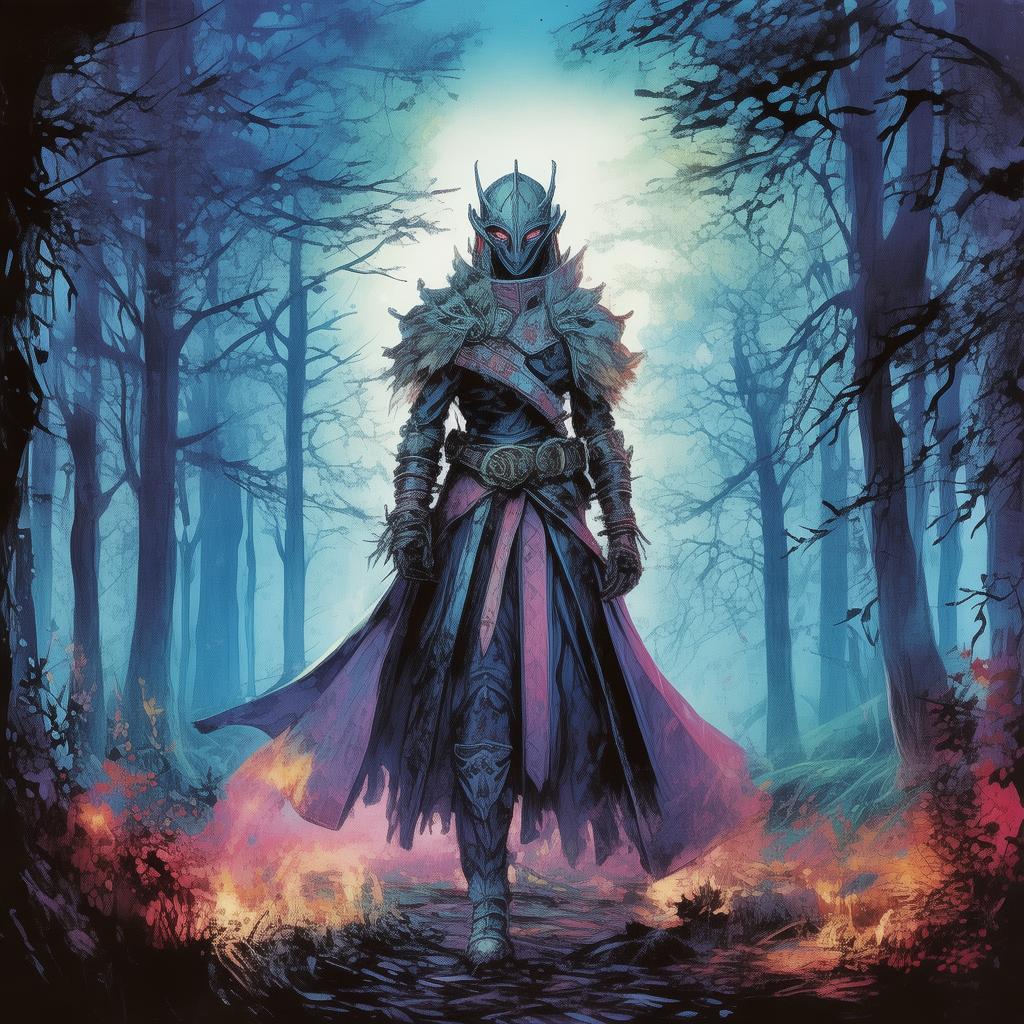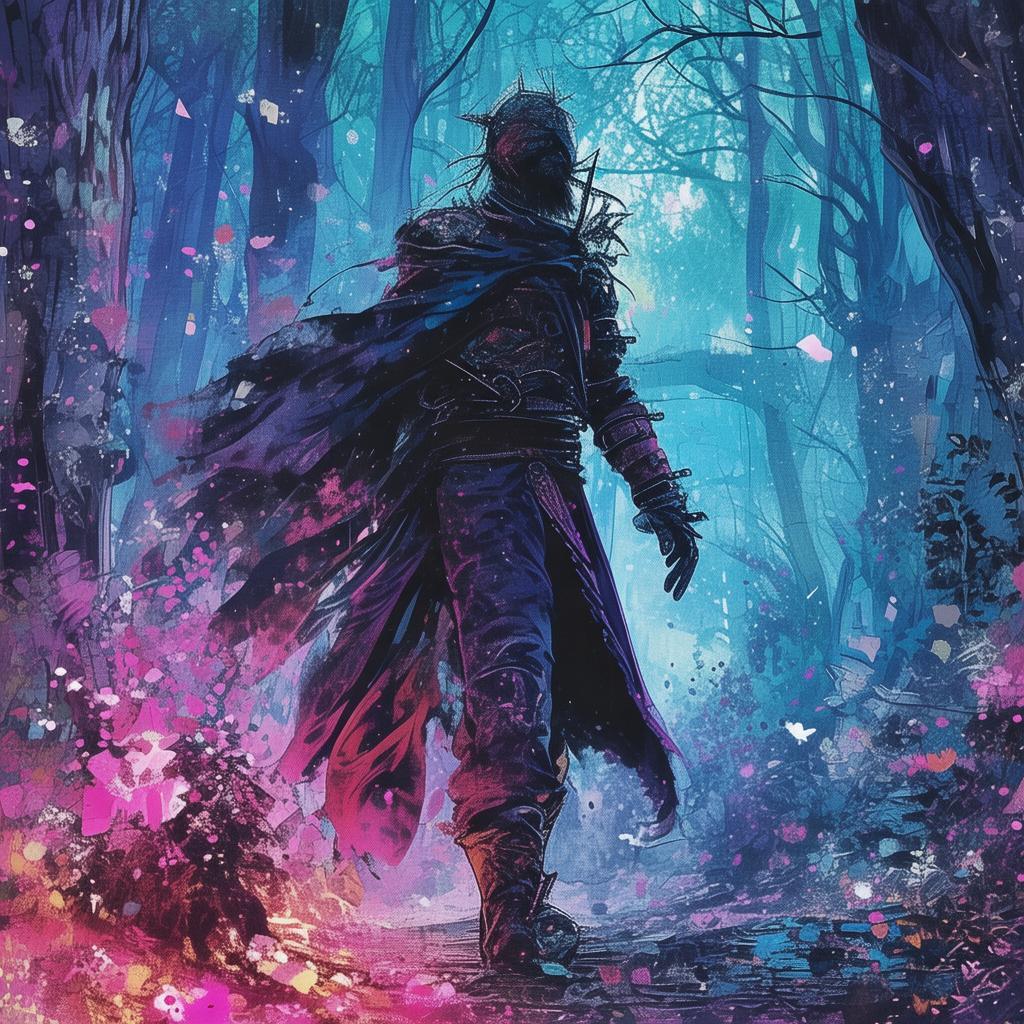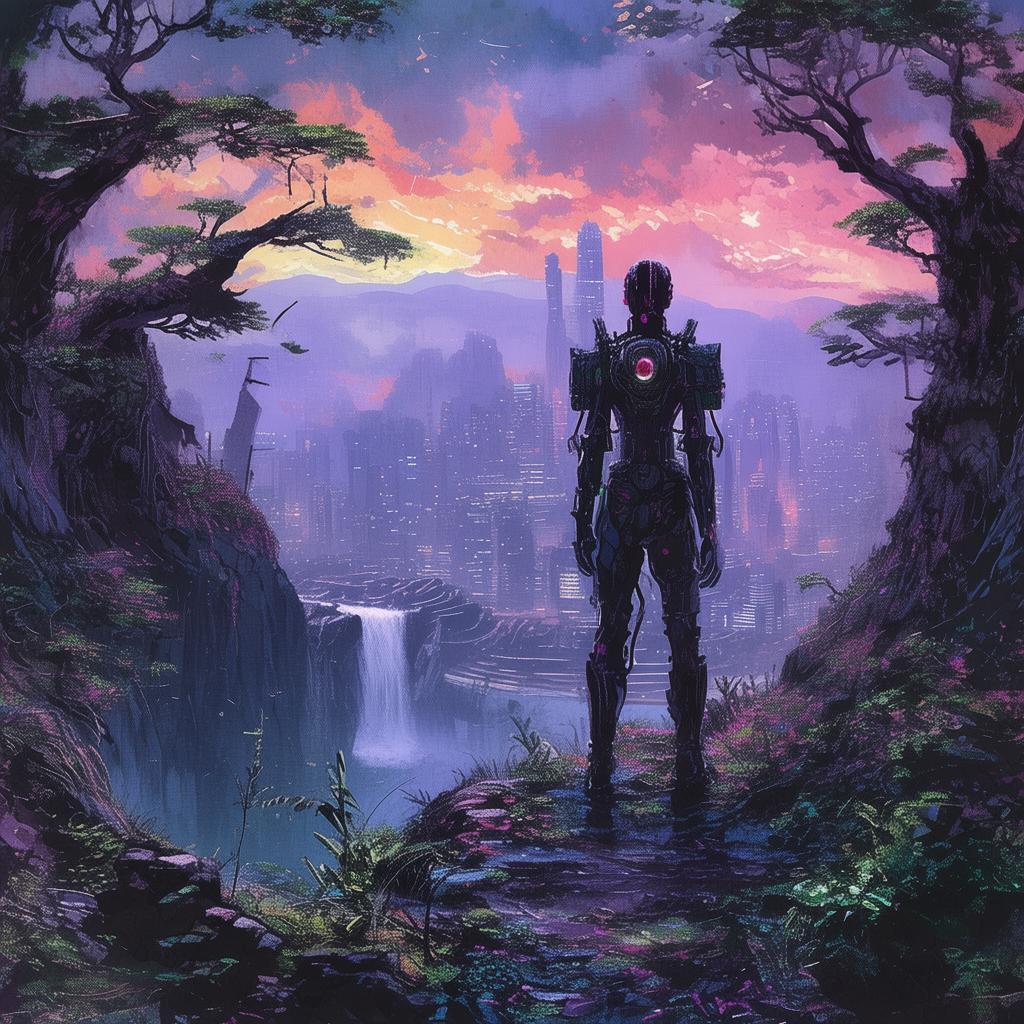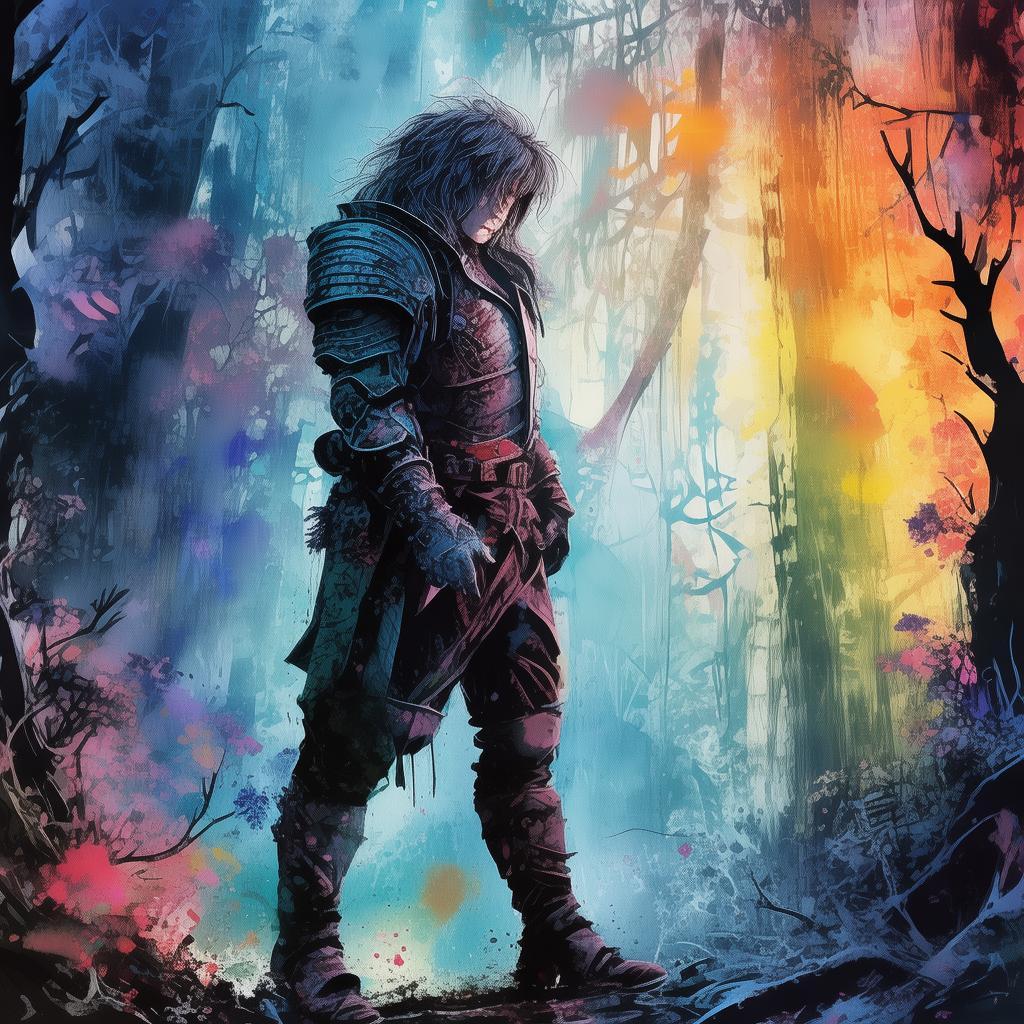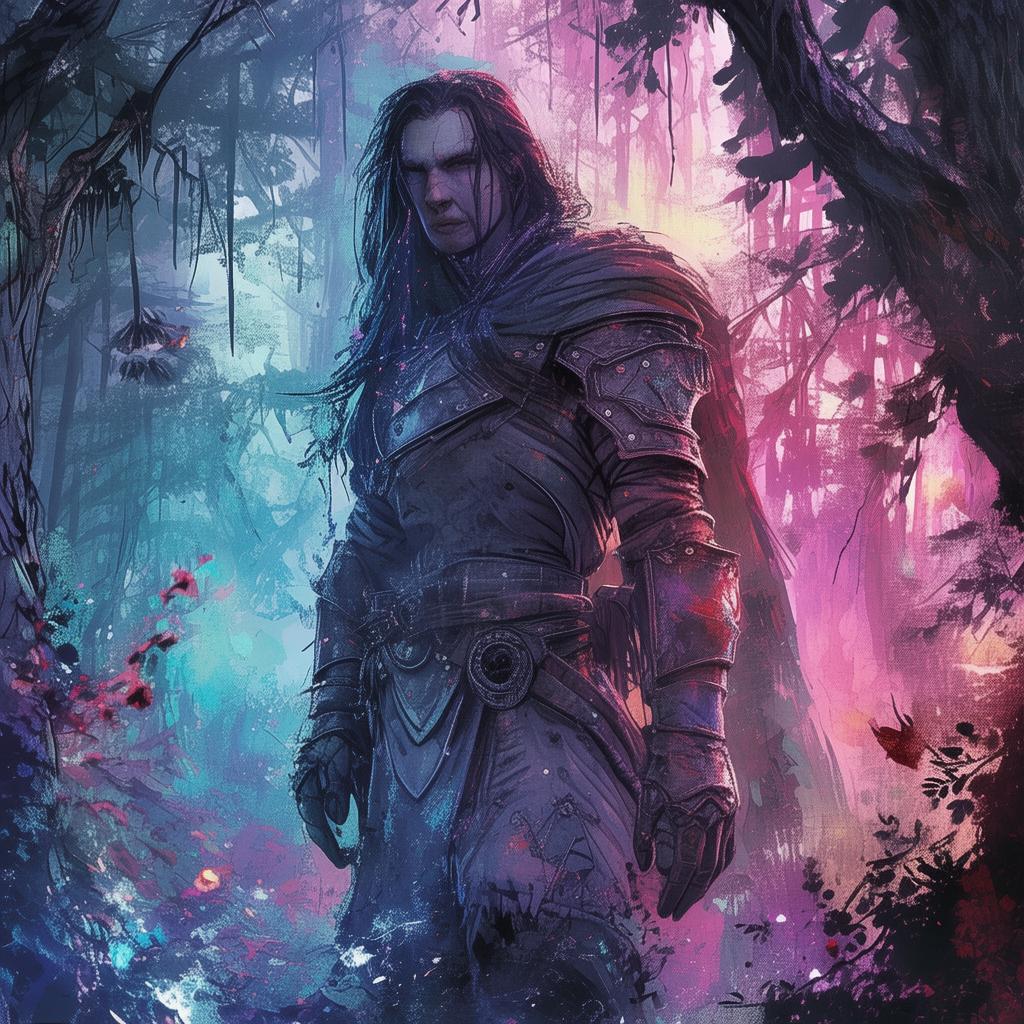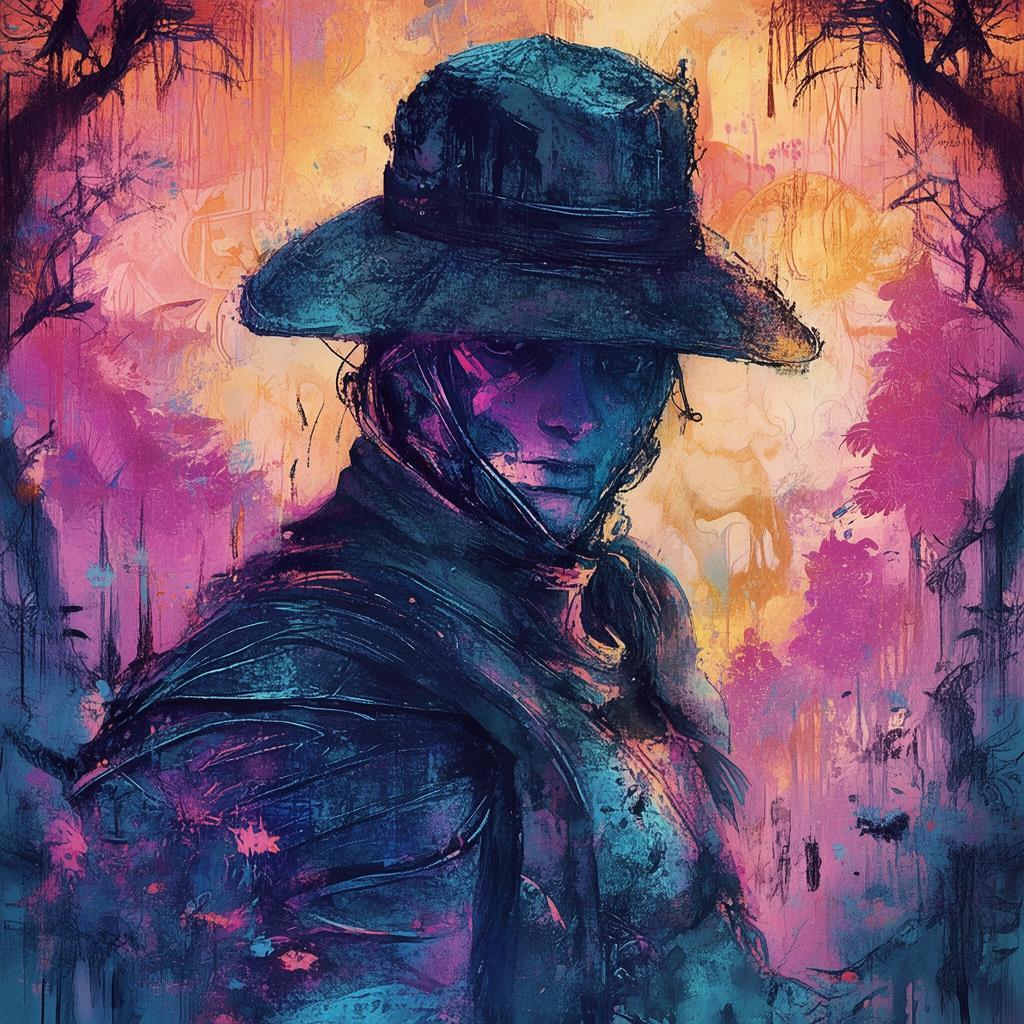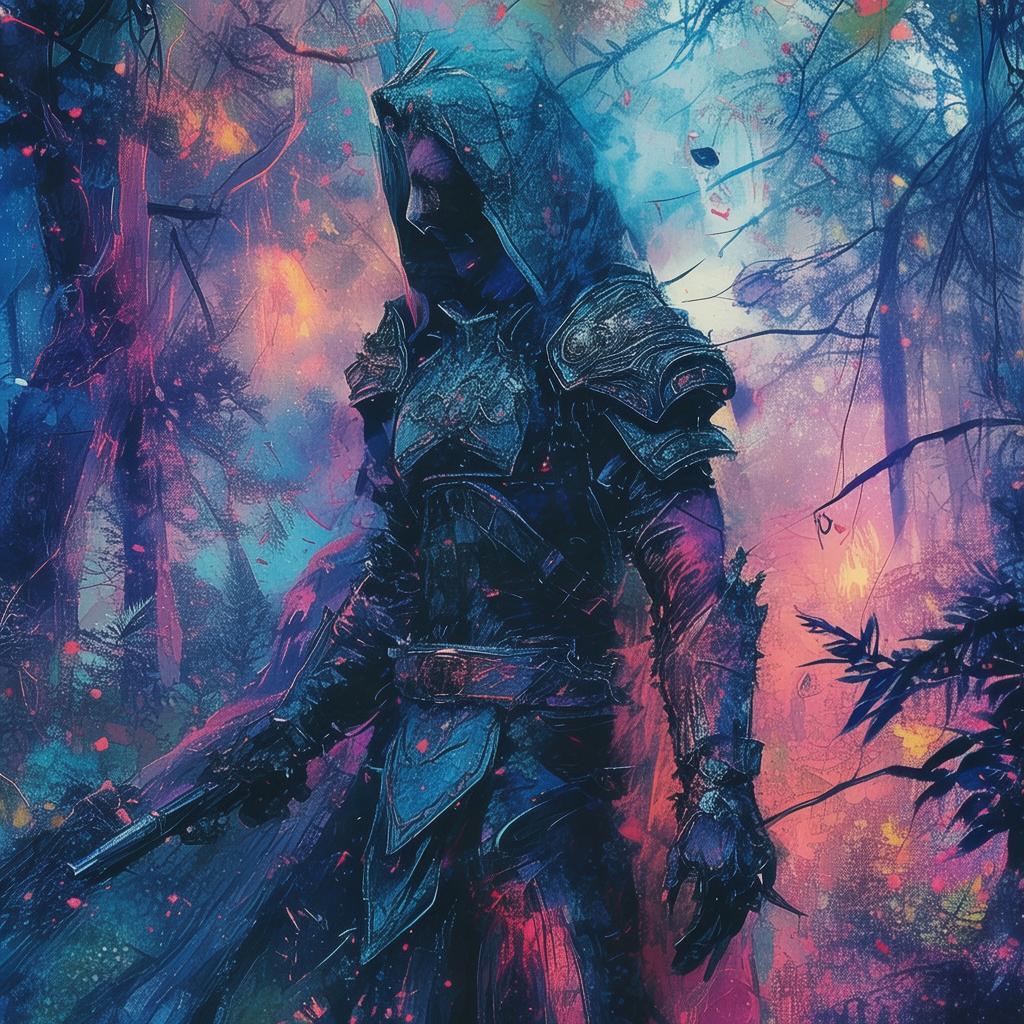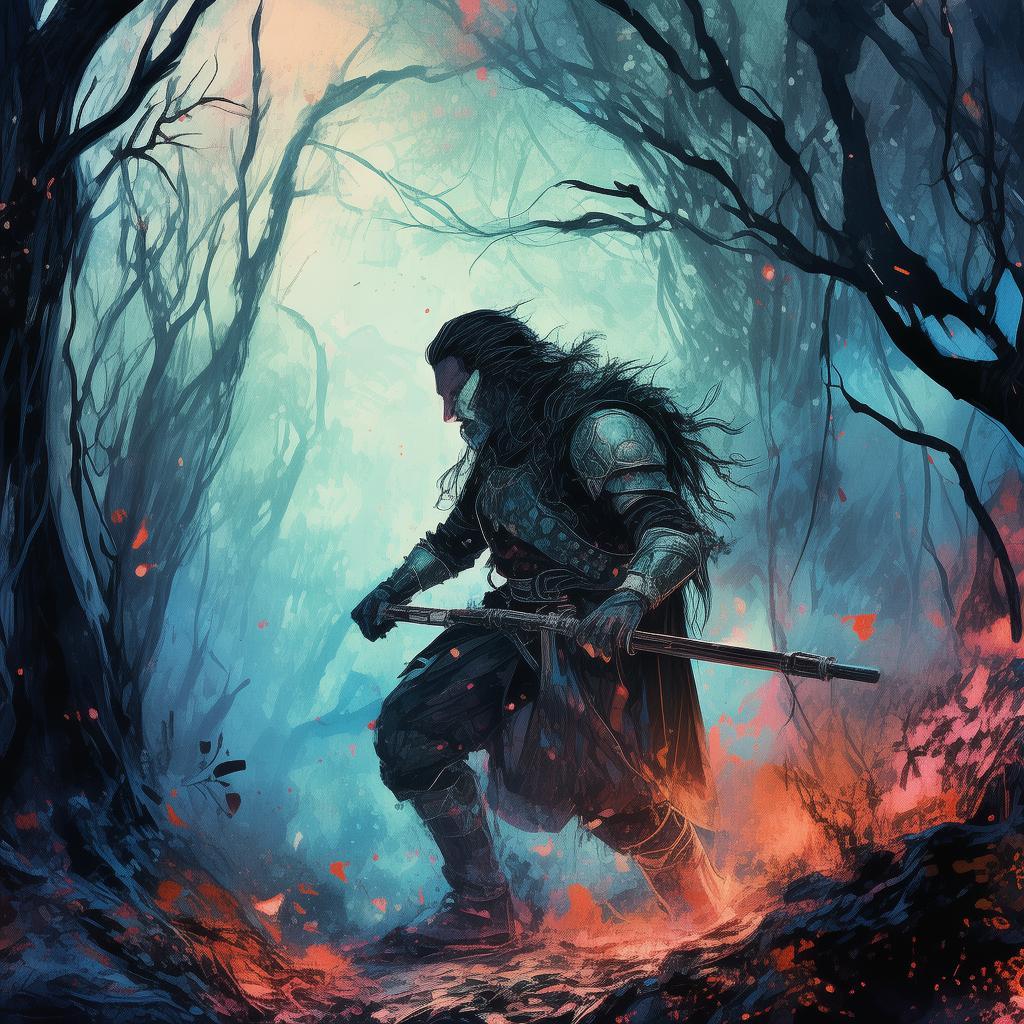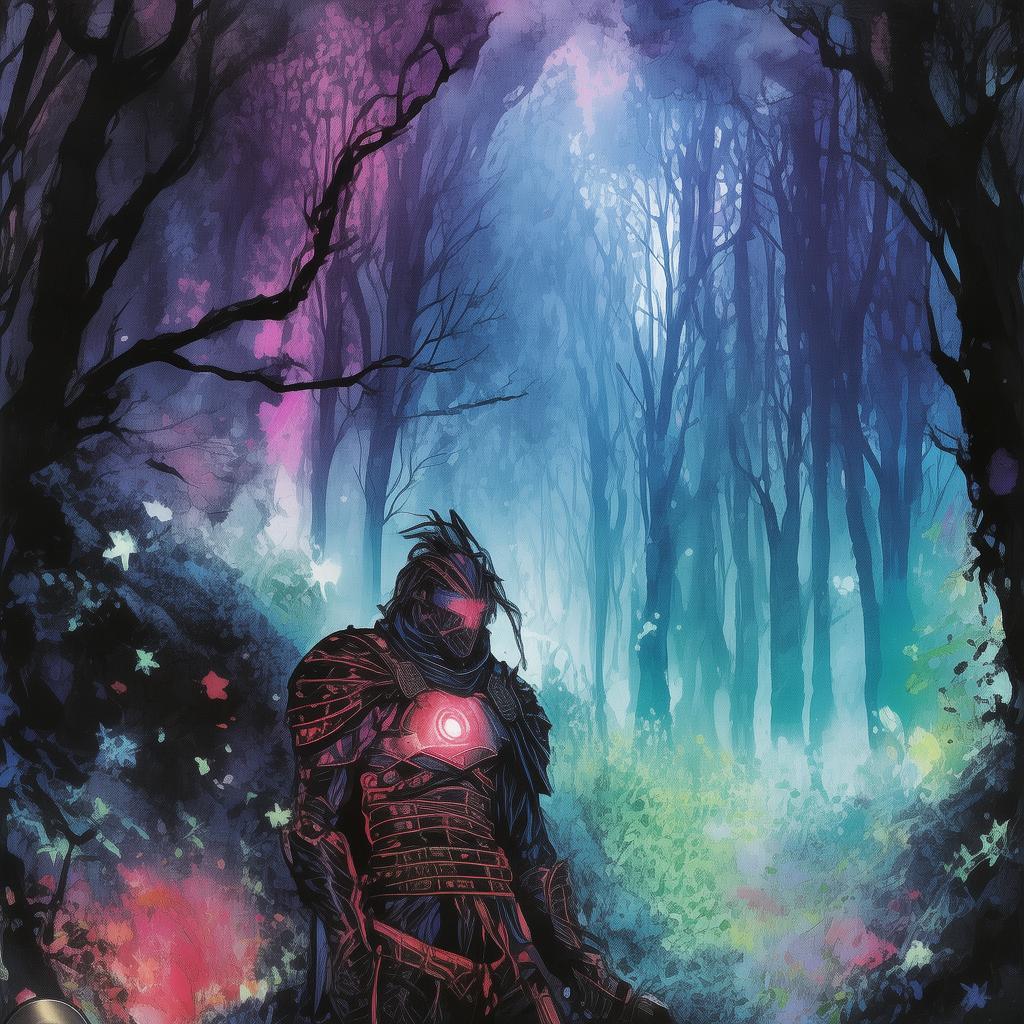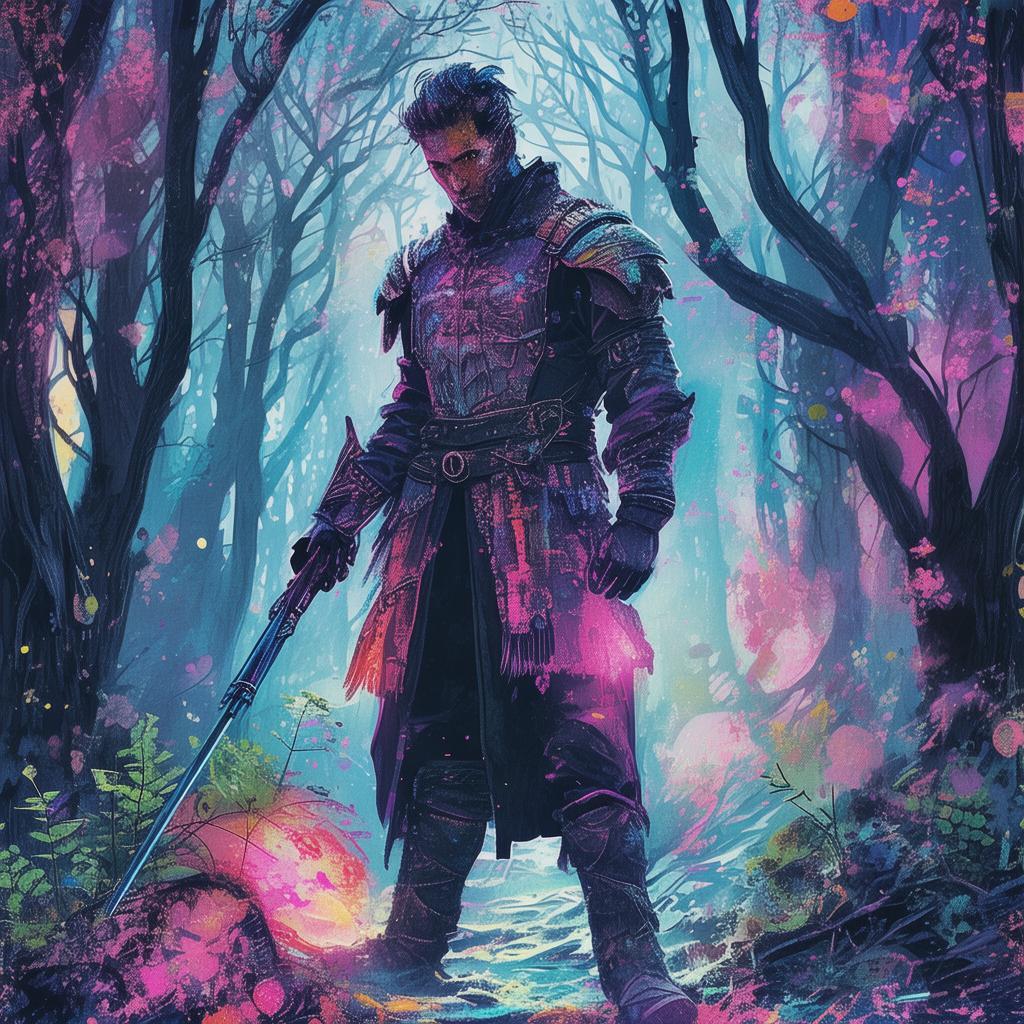The Last Nomad's Lament: The Vanished Steppes
In the heart of the Kazakh steppes, where the wind whispers tales of yore and the sun paints the sky in strokes of gold and crimson, there once lived a nomad named Berek. His name echoed like a bell through the vast plains, for he was the last of a lineage that had roamed these lands for generations. The steppes, once a vast expanse of beauty and solitude, were now being encroached upon by the relentless march of civilization.
Berek was a man of few words, his face etched with the lines of the wind and the sun. He wore a deel, the traditional Kazakh robe, woven from the wool of the sheep that had accompanied his people for centuries. His eyes, like the sky above, held a depth that spoke of stories untold.
One evening, as the sun dipped below the horizon, casting a long shadow over the steppes, Berek sat by a small campfire, the flames flickering in the cool breeze. He reached into his deel and pulled out a worn-out leather-bound book, its pages yellowed with age. It was the journal of his great-grandfather, a testament to the nomadic life that was now fading into memory.
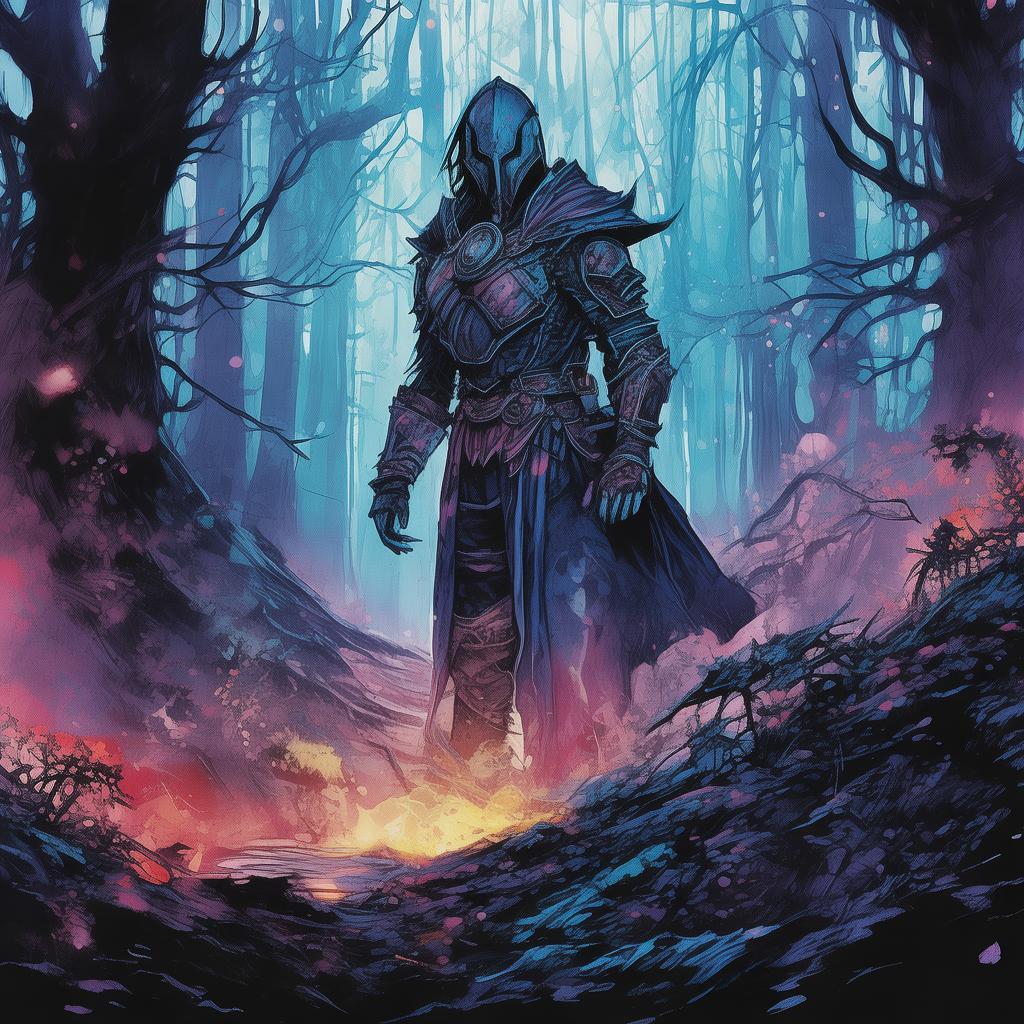
He opened the book to a page filled with intricate illustrations and a single entry that read:
"In the year of our Lord, 1900, the great herds are thinning, and the rains have failed. Our people must adapt or face the specter of extinction."
Berek's fingers traced the words, his heart heavy with the weight of the past. He had grown up hearing tales of the steppes' grandeur, of the herds of horses and flocks of sheep that stretched as far as the eye could see. But now, those tales were just that—tales.
The next morning, as Berek watched the sun rise over the steppes, he noticed something that chilled him to the bone. A road, wide and paved, was being laid across the land he called home. It was a symbol of the change that was coming, a change that would uproot the very essence of Kazakh nomadic life.
Determined to preserve his heritage, Berek set out on a journey to find a way to protect the steppes. He traveled from village to village, speaking with the elders, gathering stories, and seeking advice. He encountered resistance, for many believed that the road was a sign of progress, a step toward a better life.
But Berek knew that progress could not come at the cost of their ancient way of life. He returned to his camp, determined to make a stand. He gathered his closest friends and family, the remnants of his nomadic tribe, and together they faced the encroaching world.
One day, as Berek stood before a crowd of villagers, his voice carried the weight of his people's hopes and fears. "We are not asking for charity or favors," he said. "We are asking for the right to live as we have always lived. The steppes are not just land; they are our history, our culture, our home."
The crowd fell silent, and a hush settled over the land. Berek felt a surge of hope, for he knew that the nomadic spirit was alive in these people, even if it was waning.
But the world did not stop turning. The road was completed, and soon, trucks and cars began to roll across the steppes. The once-great herds were forced to move to new pastures, and the Kazakhs were left with little choice but to adapt to a life they had never known.
Berek's heart ached with the loss of his heritage, but he did not give up. He began to work with the government to establish protected areas for the steppes, to ensure that future generations could experience the beauty and richness of the land he loved.
Years passed, and Berek's once youthful hair turned silver. He watched as his children and grandchildren learned the ways of the nomads, and he felt a small measure of hope. But the steppes were still disappearing, and with them, a part of Berek's soul.
One evening, as the wind carried the scent of rain across the plains, Berek sat once again by his campfire. He opened his great-grandfather's journal and read the final entry:
"In the year of our Lord, 1930, the last of our herds have vanished. Our people must leave the steppes or face extinction. Let this be a lesson to those who come after us."
Berek closed the book, his eyes filled with tears. He knew that his struggle was not over, that the legacy of the Kazakh nomads would live on, even if their way of life was slowly fading into memory.
As the fire died down, Berek rose to his feet and walked out into the night. He gazed up at the stars, each one a silent witness to the vanishing steppes. In that moment, he made a silent vow to his ancestors, to his people, and to the land he loved so dearly.
The last Kazakh nomad had found his purpose, not in the preservation of a way of life that was disappearing, but in the fight to ensure that the spirit of the steppes would never be forgotten.
✨ Original Statement ✨
All articles published on this website (including but not limited to text, images, videos, and other content) are original or authorized for reposting and are protected by relevant laws. Without the explicit written permission of this website, no individual or organization may copy, modify, repost, or use the content for commercial purposes.
If you need to quote or cooperate, please contact this site for authorization. We reserve the right to pursue legal responsibility for any unauthorized use.
Hereby declared.
